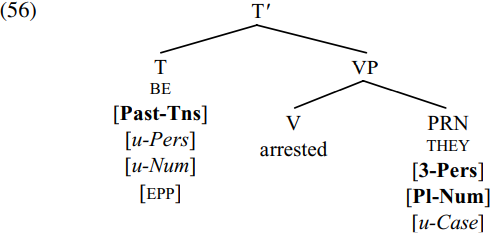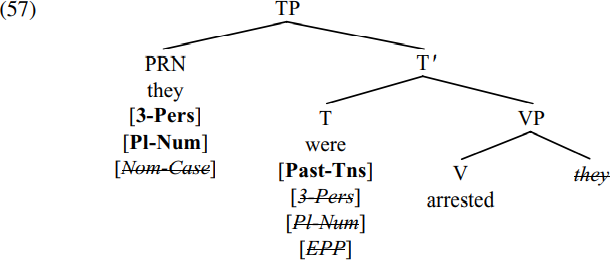

Grammar


Tenses


Present

Present Simple

Present Continuous

Present Perfect

Present Perfect Continuous


Past

Past Simple

Past Continuous

Past Perfect

Past Perfect Continuous


Future

Future Simple

Future Continuous

Future Perfect

Future Perfect Continuous


Parts Of Speech


Nouns

Countable and uncountable nouns

Verbal nouns

Singular and Plural nouns

Proper nouns

Nouns gender

Nouns definition

Concrete nouns

Abstract nouns

Common nouns

Collective nouns

Definition Of Nouns

Animate and Inanimate nouns

Nouns


Verbs

Stative and dynamic verbs

Finite and nonfinite verbs

To be verbs

Transitive and intransitive verbs

Auxiliary verbs

Modal verbs

Regular and irregular verbs

Action verbs

Verbs


Adverbs

Relative adverbs

Interrogative adverbs

Adverbs of time

Adverbs of place

Adverbs of reason

Adverbs of quantity

Adverbs of manner

Adverbs of frequency

Adverbs of affirmation

Adverbs


Adjectives

Quantitative adjective

Proper adjective

Possessive adjective

Numeral adjective

Interrogative adjective

Distributive adjective

Descriptive adjective

Demonstrative adjective


Pronouns

Subject pronoun

Relative pronoun

Reflexive pronoun

Reciprocal pronoun

Possessive pronoun

Personal pronoun

Interrogative pronoun

Indefinite pronoun

Emphatic pronoun

Distributive pronoun

Demonstrative pronoun

Pronouns


Pre Position


Preposition by function

Time preposition

Reason preposition

Possession preposition

Place preposition

Phrases preposition

Origin preposition

Measure preposition

Direction preposition

Contrast preposition

Agent preposition


Preposition by construction

Simple preposition

Phrase preposition

Double preposition

Compound preposition

prepositions


Conjunctions

Subordinating conjunction

Correlative conjunction

Coordinating conjunction

Conjunctive adverbs

conjunctions


Interjections

Express calling interjection

Phrases

Sentences


Grammar Rules

Passive and Active

Preference

Requests and offers

wishes

Be used to

Some and any

Could have done

Describing people

Giving advices

Possession

Comparative and superlative

Giving Reason

Making Suggestions

Apologizing

Forming questions

Since and for

Directions

Obligation

Adverbials

invitation

Articles

Imaginary condition

Zero conditional

First conditional

Second conditional

Third conditional

Reported speech

Demonstratives

Determiners


Linguistics

Phonetics

Phonology

Linguistics fields

Syntax

Morphology

Semantics

pragmatics

History

Writing

Grammar

Phonetics and Phonology

Semiotics


Reading Comprehension

Elementary

Intermediate

Advanced


Teaching Methods

Teaching Strategies

Assessment
Agreement and A-movement
المؤلف:
Andrew Radford
المصدر:
Minimalist Syntax
الجزء والصفحة:
307-8
30-1-2023
1738
Agreement and A-movement
So far, we have seen that agreement plays an important role not only in valuing the  -features of T but also in valuing the case features of nominals. Chomsky (1998, 1999, 2001) goes further and suggests that agreement also plays an important role in A-movement operations. To see why, let’s return to consider the derivation of our earlier sentence (5B) They were arrested. Assume that the derivation proceeds as sketched earlier, with THEY being merged as the thematic complement of arrested, and the resulting VP in turn being merged with the tense auxiliary BE to form the structure (56) below:
-features of T but also in valuing the case features of nominals. Chomsky (1998, 1999, 2001) goes further and suggests that agreement also plays an important role in A-movement operations. To see why, let’s return to consider the derivation of our earlier sentence (5B) They were arrested. Assume that the derivation proceeds as sketched earlier, with THEY being merged as the thematic complement of arrested, and the resulting VP in turn being merged with the tense auxiliary BE to form the structure (56) below:

In (56), [T BE]is an active probe (by virtue of its uninterpretable person and number features) and has an uninterpretable [EPP] feature. It therefore searches for active nominal goals which can value and delete its person/number features, locating the pronoun THEY (which is active by virtue of its uninterpretable case feature and which has person and number features which match those of BE).
Since the matching goal THEY is a definite pronoun, the [EPP] feature of [T BE] cannot be deleted by merging an expletive in spec-TP, but rather can only be deleted by movement of the goal to spec-TP, in accordance with (45iii): accordingly, THEY moves to become the specifier of BE, thereby deleting the uninterpretable [EPP] feature of BE. Assuming that Feature-Copying, Nominative Case Assignment and Feature-Deletion work as before, the structure which is formed at the end of the TP cycle will be that shown below:

(To avoid excessive visual clutter, the trace copy of they left behind in VP-complement position is shown here simply as they, but is in fact an identical copy of they, containing the same features as they.) The TP in (57) will subsequently be merged with a null declarative-force C, so terminating the syntactic derivation. Since all uninterpretable features have been deleted, the derivation converges – i.e. results in a syntactic structure which can subsequently be mapped into well-formed phonetic and semantic representations.
A key assumption underlying the analysis sketched here is that T triggers movement of a nominal goal with which it agrees in person and number. Interesting empirical support for this claim comes from European Portuguese. Costa (2001) notes that in colloquial Portuguese, an intransitive verb used in an unaccusative structure like that below can be either third person singular or third person plural if used with an in-situ postverbal argument as in (58) below:

However, the postverbal argument (which originates as the complement of the verb) can only move in front of the verb into spec-TP if the verb (or, more accurately, the associated T-constituent) agrees with the subject in both person and number: cf.

This suggests that movement of the italicized nominal from VP-complement position to spec-TP is dependent on full person/number agreement between T and the nominal which it attracts. Costa follows Belletti (1988) in positing that in agreementless sentences like (58b), the postverbal argument is assigned partitive case by the verb (which, in a language in which nouns have a limited case morphology will surface in a form homophonous with the accusative); assignment of case to the complement makes it inactive, and so ineligible to undergo T-agreement – with the result that T surfaces in the agreementless default (third-person-singular) form. It may be that we find a related phenomenon in English sentence pairs such as:

In (60a) the italicized pronoun expression follows the verb be, is not assigned nominative case, does not trigger T-agreement and is not raised to spec-TP; by contrast in (60b) the italicized nominal is assigned nominative case, triggers T-agreement, and is moved to spec-TP. Accordingly, sentences like (60) provide empirical support for Chomsky’s claim that there is a close association between case, agreement and A-movement.
 الاكثر قراءة في Syntax
الاكثر قراءة في Syntax
 اخر الاخبار
اخر الاخبار
اخبار العتبة العباسية المقدسة

الآخبار الصحية















 قسم الشؤون الفكرية يصدر كتاباً يوثق تاريخ السدانة في العتبة العباسية المقدسة
قسم الشؤون الفكرية يصدر كتاباً يوثق تاريخ السدانة في العتبة العباسية المقدسة "المهمة".. إصدار قصصي يوثّق القصص الفائزة في مسابقة فتوى الدفاع المقدسة للقصة القصيرة
"المهمة".. إصدار قصصي يوثّق القصص الفائزة في مسابقة فتوى الدفاع المقدسة للقصة القصيرة (نوافذ).. إصدار أدبي يوثق القصص الفائزة في مسابقة الإمام العسكري (عليه السلام)
(نوافذ).. إصدار أدبي يوثق القصص الفائزة في مسابقة الإمام العسكري (عليه السلام)


















